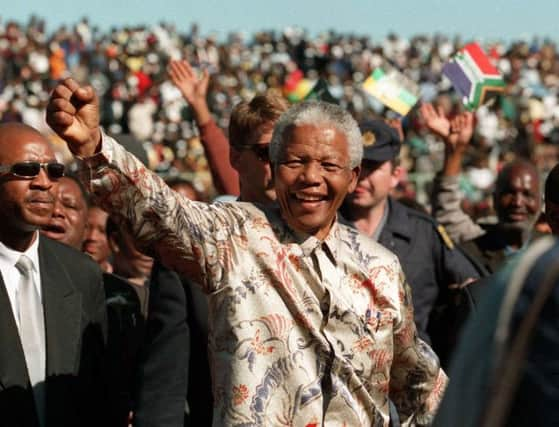Jane Devine: A tougher side to Nelson Mandela


When Mandela died, earlier this month, we all knew instantly. The power of modern technology meant that the story zoomed round the globe at lightning speed and the lightning speed of the news demanded a super-fast reaction.
Suddenly everyone was a Mandela expert and anyone who had ever met him or even seen him had a story worth reporting.
Advertisement
Hide AdAdvertisement
Hide AdExcept the story that was reported was only really half a story, according to Michael Portillo. The former Conservative MP last week criticised coverage of Mandela’s death as “lacking objectivity” and “verging on hysteria”, adding that he believed “there was more than one side of the man to be reported”.
To me, that rang true. The media seemed to concentrate on Mandela the Nobel Prize winner, the president, the world leader, the man who wore a Springboks top to watch his team play rugby, the man who tried to unify a nation. But this perspective on history, perhaps in part prejudiced by interviews with people who only met Mandela after he was released from prison, failed to capture the grittier side of Mandela.
It’s the grittier side I most resonate with, not because I knew him or met him, but because I, like many other people, don’t chose to remember the parts of history I’ve lived through the way 24-hour news does: in soundbites and with shallow, instant reaction.
I remember the debates in the 1980s when the IRA were at large. Comparisons between the Irish republicans and the ANC were common: were they freedom fighters or terrorists and what was the difference anyway? When Mandela was released from prison, he said he would not rule out direct action by the ANC until apartheid had been dismantled.
I remember scouring the fruit and veg section of Fine Fare as a child trying to find apples and grapes that were not from South Africa on the instructions of my parents who did not want to do anything to support the oppressive regime there.
Many people, like me, who have memories of what Mandela meant to them will have felt let down by the recent coverage of his life. He was described last week as the “father of a nation” and “the greatest figure of our generation”. He may well be, but for many other reasons than those recalled in recent days.
We do no justice to history if we recollect only the bits we can find people to talk about in the immediate aftermath of an event. A generation have now grown up learning about apartheid in history lessons. It’s important that they know, too, there was more to Mandela than bright shirts and a huge smile.